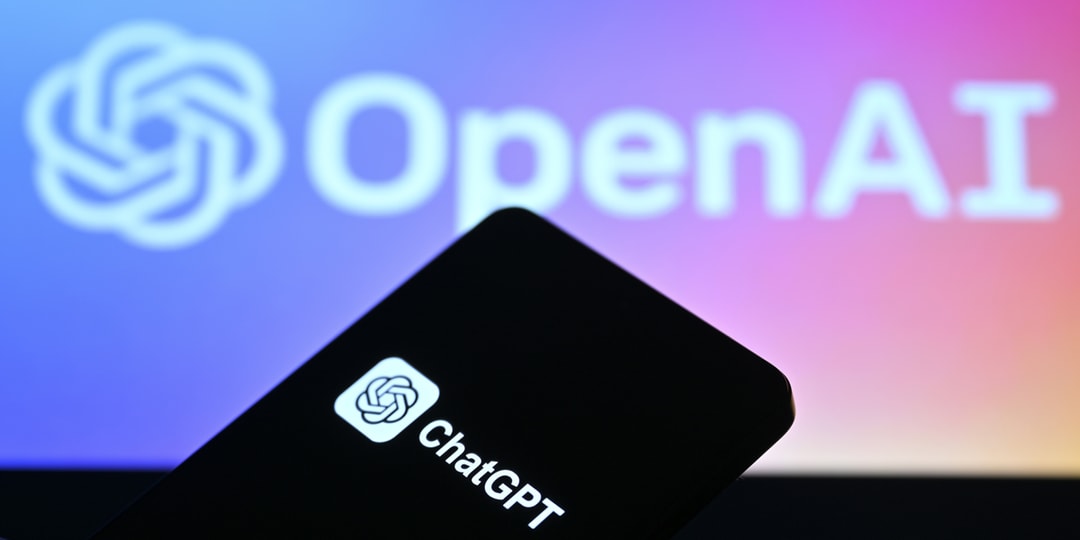OpenAI And ChatGPT: Facing FTC Investigation For Potential Privacy Violations

Table of Contents
The FTC's Investigation: What are the Allegations?
The FTC's investigation into OpenAI and ChatGPT centers around several key allegations regarding the company's data handling practices and adherence to existing privacy laws. The potential consequences are significant, potentially impacting not only OpenAI but also shaping the future of AI development and regulation.
Data Collection and Usage
The FTC is likely investigating how OpenAI collects, uses, and protects user data inputted into ChatGPT. This is a crucial aspect of the investigation, given the vast amount of personal information users unknowingly share when interacting with the AI.
- Data Collection Methods: The investigation will likely scrutinize the methods OpenAI uses to collect data, including the types of data collected (e.g., prompts, conversations, user profiles), and the mechanisms employed (e.g., cookies, IP addresses).
- Data Storage and Security: The security measures OpenAI has in place to protect user data from unauthorized access, use, or disclosure are likely under intense examination. Any instances of data breaches or vulnerabilities will be thoroughly investigated.
- Compliance with Existing Laws: The FTC will assess OpenAI's compliance with existing privacy laws, including the Children's Online Privacy Protection Act (COPPA), which protects the online privacy of children, and state-level laws like the California Consumer Privacy Act (CCPA), which grants consumers specific rights regarding their personal data. Non-compliance with these regulations could result in substantial penalties.
- Data Usage Transparency: The investigation will examine the transparency surrounding how OpenAI uses the collected data. Does OpenAI clearly articulate how user data contributes to the training and improvement of its AI models? Any misuse or unauthorized sharing of user data will be a significant concern.
Lack of Transparency and User Consent
A core element of the FTC's investigation focuses on OpenAI's transparency regarding its data practices and the consent it obtains from users. The lack of clear and accessible privacy policies could be a major point of contention.
- Privacy Policy Clarity: The investigation will examine whether OpenAI's privacy policies are easily understandable and accessible to users. Complex or unclear language could constitute a violation of user rights.
- Informed Consent: The FTC will likely scrutinize whether OpenAI obtains meaningful consent from users for the collection and use of their data. Simply having a checkbox to agree to a lengthy policy may not be sufficient; informed consent necessitates a clear understanding of what data is collected and how it is used.
- Data Retention Policies: The FTC will likely review OpenAI's data retention policies. How long does OpenAI store user data? Does it adhere to best practices regarding data minimization and deletion?
- Data Subject Access Rights: Does OpenAI provide users with the ability to access, correct, or delete their data? Compliance with these rights, as mandated by several privacy regulations, is crucial.
Potential for Bias and Discrimination
The FTC investigation might also explore whether ChatGPT's outputs demonstrate bias or discrimination, potentially impacting certain demographic groups unfairly. This aspect connects to privacy because it affects the equitable treatment of individuals.
- Algorithmic Bias: AI models, including ChatGPT, are trained on vast datasets. If these datasets contain biases, the AI model will likely perpetuate and amplify them. The FTC will likely examine whether ChatGPT displays biases based on gender, race, ethnicity, or other protected characteristics.
- Discriminatory Outcomes: The investigation will assess whether ChatGPT's outputs lead to discriminatory outcomes in areas such as loan applications, employment screening, or other decision-making processes.
- Mitigation Strategies: The FTC will likely evaluate the steps OpenAI has taken to mitigate bias and discrimination in its AI models. Are there mechanisms in place to detect and address bias in training data and model outputs?
The Implications for OpenAI and the Future of AI Development
The FTC investigation carries substantial implications for OpenAI and the broader AI industry, potentially shaping future development and regulation.
Financial Penalties and Regulatory Changes
If OpenAI is found to have violated privacy laws, it could face substantial fines and legal repercussions. This investigation could also serve as a catalyst for stricter regulations governing the development and deployment of AI systems.
- Financial Penalties: Depending on the severity of the violations, OpenAI could face substantial fines under existing laws like the CCPA and potentially future AI-specific legislation.
- Increased Regulatory Scrutiny: The FTC investigation highlights the growing need for increased regulatory oversight of the AI industry. Expect to see more stringent regulations requiring greater transparency and accountability from AI companies.
- Data Protection Frameworks: New regulations might mandate specific data protection frameworks for AI companies, including requirements for data minimization, purpose limitation, and robust security measures.
- Impact on Innovation: While stricter regulations might slow down innovation in some areas, they are essential for fostering trust and ensuring responsible AI development.
Impact on User Trust and Adoption
The FTC investigation could negatively impact user trust in OpenAI and ChatGPT. Concerns about data privacy may discourage users from adopting the technology, hindering its growth and widespread use.
- Erosion of User Trust: Negative publicity surrounding the FTC investigation could erode user trust, leading to a decline in the adoption of ChatGPT and other OpenAI products.
- Reputational Damage: The investigation could severely damage OpenAI's reputation, making it harder to attract investors, partners, and talented employees.
- Impact on Market Share: Competitors could capitalize on the situation by promoting their own AI products as more privacy-conscious alternatives.
The Broader Implications for the AI Industry
The outcome of the OpenAI investigation will set a precedent for other AI companies, highlighting the critical need for proactive measures regarding data security and privacy by design.
- Industry-Wide Best Practices: The investigation could lead to the development of industry-wide best practices for data handling in the AI sector. This would involve greater collaboration among AI companies, regulators, and privacy experts.
- Proactive Data Protection: AI companies will likely be compelled to adopt more proactive approaches to data protection, including implementing stronger security measures, enhancing transparency, and proactively addressing biases in their AI models.
- Self-Regulation Initiatives: The AI industry might see a surge in self-regulatory initiatives, aimed at establishing ethical guidelines and best practices for data privacy and AI development.
Conclusion
The FTC investigation into OpenAI and ChatGPT's data practices underscores the urgent need for stronger privacy protections in the AI industry. The outcome of this investigation will have significant implications for OpenAI, the wider AI landscape, and the trust users place in these powerful technologies. Understanding the potential privacy risks associated with AI tools like ChatGPT is crucial. Stay informed about the evolving regulatory landscape and advocate for responsible AI development that prioritizes data privacy. The future of AI hinges on navigating these crucial privacy concerns effectively, ensuring a balance between innovation and ethical considerations. Learn more about OpenAI and ChatGPT's privacy policies and stay updated on the FTC investigation to ensure your data remains protected.

Featured Posts
-
 Tonights Cavaliers Vs Pacers Game Predictions Picks And Betting Odds
May 07, 2025
Tonights Cavaliers Vs Pacers Game Predictions Picks And Betting Odds
May 07, 2025 -
 Golden State Warriors Target Kevon Looney In Nba Free Agency
May 07, 2025
Golden State Warriors Target Kevon Looney In Nba Free Agency
May 07, 2025 -
 Going From March Madness To Trademark Madness Protecting Your Brand During The Tournament
May 07, 2025
Going From March Madness To Trademark Madness Protecting Your Brand During The Tournament
May 07, 2025 -
 Kumingas Return Fuels Warriors Victory Curry Kerr Hit Milestones Against Kings
May 07, 2025
Kumingas Return Fuels Warriors Victory Curry Kerr Hit Milestones Against Kings
May 07, 2025 -
 Karate Kid 6 And Beyond Ralph Macchios Future Film Projects
May 07, 2025
Karate Kid 6 And Beyond Ralph Macchios Future Film Projects
May 07, 2025
